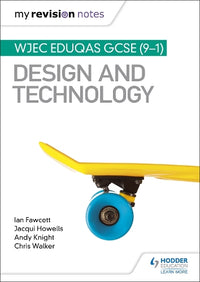Attributes of a Most Able Learner in English
A Most Able learner in Engineering should be able to demonstrate a deep understanding of engineering principles and apply them confidently to both theoretical and practical tasks. They should be capable of analysing and solving complex problems using logical reasoning, creativity, and technical knowledge. Learners should be able to independently use CAD software to produce accurate and well-considered design solutions, justify material and process choices based on functionality, cost, and sustainability, and critically evaluate their own work and that of others with confidence. Most able learners should actively engage with wider engineering contexts such as; current industry developments, ethical considerations, and environmental impact. They should be able to confidently communicate their ideas clearly through both written and verbal means.
Learning Outside of the Classroom
Learning outside the classroom for Engineering enhances learners’ understanding by connecting theoretical knowledge to practical, real-world applications. Open day visits to engineering firms, construction sites, or manufacturing facilities provide insight into industry practices, materials, and processes, reinforcing what is taught in school. Work experience placements or employer-led projects can offer hands-on experience and develop key employability skills. Engaging in national competitions, such as the Big Bang Competition or the VEX Robotics Challenge, also fosters innovation, teamwork, and confidence. These experiences not only support curriculum goals but also help learners make informed decisions about future STEM careers. Online visits to engineering museums such as: The Royal Engineers Museum or Crossness Engines/Pumping room can help understand historical concepts of engineering and how this has developed over the years to the success that it is in the present day.
AQA Revision Guides for Key Stage 4
 |
 |
Level 1/2 Vocational Award in Engineering WJEC | Eduqas
My Revision Notes: WJEC Eduqas GCSE (9-1) Design and Technology
Knowledge Organisers
How We Support Most Able Learners in Lessons
| Disciplinary Skill/Knowledge | Tailored Support |
| Exam strategies and Revision |
|
Being able to work independently
|
|
| Be able to use appropriate Engineering terminology |
|
| Develop a range of Practical Skills |
|
| Have a variety of knowledge and understanding |
|
What Can Parents/Carers Do To Support?
Show Interest in the Subject: Ask about what they are learning, the projects they are working on, and the challenges they are facing. A genuine interest can be a great motivator. Connect Engineering to the Real World: Point out examples of engineering in everyday life – bridges, buildings, vehicles, electronic devices. Discuss how things are designed and made. Encourage Curiosity and Questioning: Support their natural curiosity by encouraging them to ask “how” and “why” things work. Help them find answers through books, the internet, or even simple experiments. Visit Relevant Places. Consider visits to science museums, technology centers, local businesses involved in manufacturing or engineering (if opportunities arise), or even historical sites showcasing engineering achievements.
Useful Websites
http://www.technologystudent.com
(Technology Student)
http://www.design-technology.info/engineering
(Design and Technology)
http://www.design-technology.info/revisionguides
(Revision)
https://www.bbc.co.uk/bitesize/articles/zpgdkty#zb8gcmn
(Engineering)
https://www.sketchup.com/en/plans-and-pricing/sketchup-free
(CAD Design – Google Sketch up)
https://www.bbc.co.uk/bitesize/articles/z7n4bdm#z2dx6g8
(BBC Bitesize)
https://nationalcareers.service.gov.uk
(Careers)

